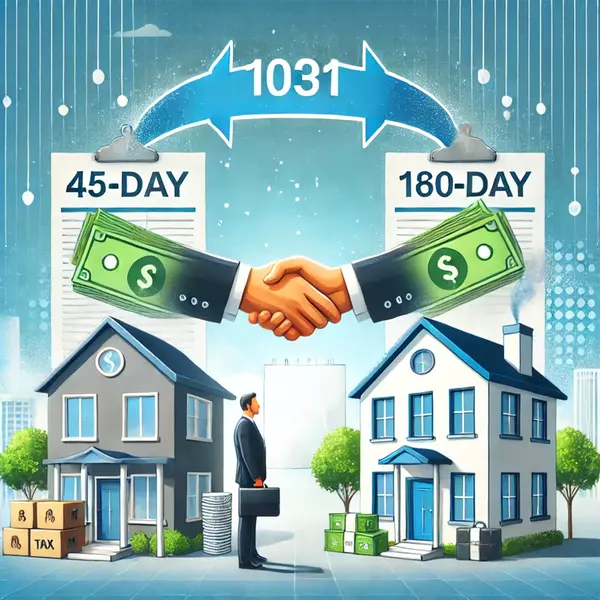How to Get Your Finances in Order Before Buying a Home

So, you’re ready to jump into the exciting world of home buying? Whether it’s your first rodeo or you’re coming back for round two, the secret to success is simple: get your finances in tip-top shape. Because let’s face it, buying a house isn’t just about swooning over open-floor plans or picturing where your dog’s bed will go—it’s about having the numbers to make it happen. Here’s your cheat sheet to prepare like a pro and avoid financial headaches down the road. 1. Know Thy Credit Score (and Love It Anyway) Your credit score is like your home-buying GPA—it determines how lenders view you and what interest rate you’ll snag. Even if your score has seen better days, it’s not game over. Pull your credit report (you can do this for free at AnnualCreditReport.com). Dispute any errors that are dragging you down. Pay down high-interest debt and avoid opening new credit cards before applying for a mortgage. Pro tip: Aim for a score of 620 or higher for most loan programs, though a 740+ score will open doors to lower rates. 2. Set a Budget (That Includes More Than the House) You’ve probably heard this a million times: “How much house can I afford?” But here’s the twist—don’t just focus on the sticker price. Remember to budget for: Closing costs: Typically 2-5% of the home’s purchase price. Taxes and insurance: These can significantly impact your monthly payment. Maintenance: Homes don’t fix themselves, folks. Set aside 1-2% of the home’s value annually for repairs. Use an online mortgage calculator to get a realistic picture of what your monthly payment will look like, and make sure it’s a number you’re comfortable with. 3. Find a Rock-Star Mortgage Broker Think of your mortgage broker as your financial matchmaker. They’ll connect you with the right loan for your situation. A good broker will: Shop multiple lenders to find the best rates. Explain loan options in plain English (fixed-rate? ARM? FHA? Conventional? No problem!). Help you get pre-approved so you know exactly how much house you can afford before you start shopping. When choosing a broker, read reviews, ask for referrals, and look for someone with a reputation for transparency and responsiveness. 4. Team Up with a Well-Connected Real Estate Agent The right agent is more than just someone who unlocks doors. They’ll be your guide, your advocate, and—if you’re lucky—a bit of a magician when it comes to finding the perfect home. Here’s why it matters: Strong relationships with local lenders and brokers: A good agent knows who’s reputable and who will actually get you to closing. Market expertise: They’ll help you avoid overpaying or missing out on great deals. Negotiation skills: Trust me, this will come in handy when it’s time to haggle over price, contingencies, or repairs. Ask friends and family for recommendations, and don’t be shy about interviewing a few agents before committing. 5. Save, Save, Save (and Then Save Some More) You’ll need more than just a down payment to buy a home. Here’s a quick savings checklist: Emergency fund: Lenders want to see that you have 3-6 months of expenses saved. Down payment: While 20% is ideal, many loans require as little as 3-5%. Move-in costs: Think furniture, paint, or that new espresso machine you’ve been eyeing. Set up automatic transfers to a savings account dedicated to home buying. Small, consistent contributions can add up fast. 6. Get Pre-Approved (Not Just Pre-Qualified) A pre-approval isn’t just a piece of paper—it’s your golden ticket. It tells sellers you’re serious and ready to buy. To get pre-approved, you’ll need to provide documentation like: Pay stubs and tax returns. Bank statements. Proof of assets (like investments or retirement accounts). Bonus: Pre-approval helps you stay realistic about what you can afford, so you don’t fall in love with a house that’s out of your budget. 7. Keep Your Financial House in Order Once you’re pre-approved, resist the urge to make big financial changes. Avoid: Opening new credit cards or taking on new loans. Making large, untraceable deposits. Quitting your job or switching careers (even if your dream job calls!). Lenders like stability. Keep things steady until you close. 8. Educate Yourself on Assistance Programs First-time buyers (and some second-time buyers!) may qualify for down payment assistance, tax credits, or special loan programs. Examples include: FHA loans (low down payment, flexible credit requirements). VA loans (zero down for eligible veterans). USDA loans (for homes in rural areas). Ask your mortgage broker or real estate agent about programs in your area. Free money is the best money. 9. The Home Stretch: Stick to Your Plan Once you’ve found “the one,” don’t let emotions steer the ship. Stay within your budget, trust your agent, and keep your eyes on the prize—a home that fits your lifestyle and your wallet. In Conclusion Buying a home is a big deal, but with the right preparation, you can make the process smooth and (dare we say) enjoyable. By getting your finances in order, working with experienced professionals, and sticking to a realistic plan, you’ll be in your new home and celebrating with a pizza picnic on the living room floor in no time. Now, go forth and adult like a champion. Your dream home is waiting!
Read More
Recent Posts










